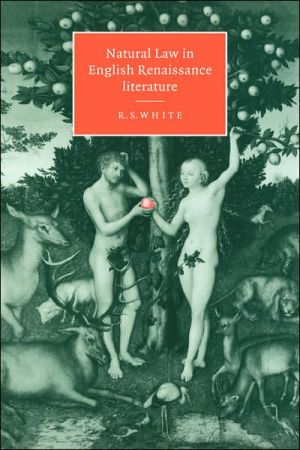

 |

|

Sold Out
Book Categories |
Preface; Acknowledgements:
1. Natural Law in history and Renaissance literature;
2. The heritage of classical Natural Law;
3. The reception of Natural Law in Renaissance England;
4. Law and literature in sixteenth-century England;
5. More's Utopia;
6. 'Love is the fulfilling of the law': Arcadia and Love's Labour's Lost;
7. 'Hot temper leaps o'er a cold decree': The Merchant of Venice and Measure for Measure;
8. Shakespeare's The History of King Lear;
9. Milton and Natural Law; Epilogue: Hobbes and the demise of classical Natural Law; Appendix: Aquinas on the right to own private property; Notes; Select bibliography; Index.
Login|Complaints|Blog|Games|Digital Media|Souls|Obituary|Contact Us|FAQ
CAN'T FIND WHAT YOU'RE LOOKING FOR? CLICK HERE!!! X
 You must be logged in to add to WishlistX
 This item is in your Wish ListX
 This item is in your CollectionNatural Law in English Renaissance Literature
X
 This Item is in Your InventoryNatural Law in English Renaissance Literature
X
 You must be logged in to review the productsX
 X
 X

Add Natural Law in English Renaissance Literature, Natural Law, whether grounded in human reason or divine edict, encourages humankind to follow virtue and shun vice. The concept dominated Renaissance thought, where its literary equivalent, poetic justice, underpinned much of the period's creative writing, Natural Law in English Renaissance Literature to the inventory that you are selling on WonderClubX
 X

Add Natural Law in English Renaissance Literature, Natural Law, whether grounded in human reason or divine edict, encourages humankind to follow virtue and shun vice. The concept dominated Renaissance thought, where its literary equivalent, poetic justice, underpinned much of the period's creative writing, Natural Law in English Renaissance Literature to your collection on WonderClub |